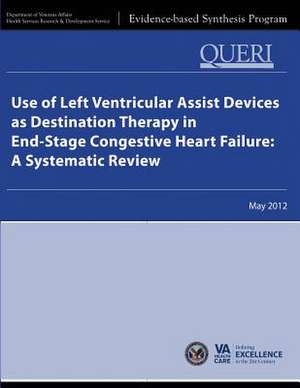Use of Left Ventricular Assist Devices as Destination Therapy in End-Stage Congestive Heart Failure
Autor U. S. Department of Veterans Affairs, Health Services Research &. Deve Serviceen Limba Engleză Paperback
Preț: 95.95 lei
Preț vechi: 101.00 lei
-5% Nou
Puncte Express: 144
Preț estimativ în valută:
18.36€ • 19.22$ • 15.19£
18.36€ • 19.22$ • 15.19£
Carte disponibilă
Livrare economică 15-29 martie
Preluare comenzi: 021 569.72.76
Specificații
ISBN-13: 9781489539755
ISBN-10: 1489539751
Pagini: 48
Dimensiuni: 216 x 280 x 3 mm
Greutate: 0.14 kg
Editura: CREATESPACE
ISBN-10: 1489539751
Pagini: 48
Dimensiuni: 216 x 280 x 3 mm
Greutate: 0.14 kg
Editura: CREATESPACE
